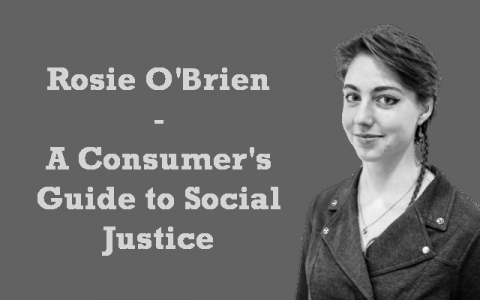We all love instant messaging and photos of ourselves as much as the next person, but it’s time for us to think critically about our cell phone and computer use. In regards to both consumers and producers, digital technology is a vicious cycle of development, capital, exploitation and dopamine which simultaneously distracts us from the real world and offers us an amazing opportunity to change it.
One of the best things about the apps on our phones is that we can constantly stay on top of everything going on around us. But immediate gratification has many downsides.
According to Clay Shirky, a Media Studies professor at NYU who recently banned digital technology from his classroom, students’ levels of distraction seem to increase each year in relation to the “rising ubiquity and utility of the devices themselves” (from “Why I Just Asked My Students to Put Their Laptops Away,” published on September 9 on Medium.com). Not only are cell phones and apps easier to obtain, but the Internet in general is constantly offering new ways to engage users.
But in the August 14, 2012 Scientific American article “What Internet Habits Say About Mental Health,” recent research shows that habits such as “peer-to-peer file sharing, heavy emailing and chatting online, and a tendency to quickly switch between multiple websites” correlates positively with a person’s propensity to experience depression. Multi-tasking gives the illusion of productivity, but in the end it leaves users frazzled, destroying their short-term memory.
This should not come as a surprise. App developers make notifications frequent and accessible in order to engage users and leave them craving more. The capitalist market for social media exploits our brain’s desire for constant dopamine surges, forcing the market to create new apps not because it truly wants us to deepen our connections with other humans, but because they are designed to addict their users, because addiction sells. Of course we would rather click on “your best friend tagged a photo of you” than “U.S. drone strikes continue for fifth week,” but we need to break away from this cycle in order to engage in true social justice.
Fortunately, the problems inherent to capitalist exploitation can be reconciled when we use digital media as an instrument of change. On campus, we can measure its potential for engagement when students post anonymous mental health questions on Yik Yak or spread news of MAP presentations via Facebook. From anywhere in the world, we can click a button to support crowd-sourced campaigns or sign a petition. Most importantly, from the tiny town of Grinnell, we can even subscribe to live updates from student protesters in Hong Kong or Syria and witness police brutality not covered in mainstream media. This is an opportunity that would make the activists of the 70s turn green with jealousy, and something that students today should use to its fullest extent in a world dominated by politicized media conglomerates.
On the downside, digital technology is so prolific that it has become a distraction and even a danger. Sometimes I can’t exit the Dining Hall because mobs of students staring down at their cell phones are clogging up the exit. Is your Twitter really so important that you cannot be aware of your surroundings for five minutes? At least wait until you’re sitting on the toilet to tell us about your economics test, like most Yik Yak users seem to be doing on this campus.
Or better yet, you can delete the apps on your phone altogether. We are abusing the privilege of owning smartphones if we are only using them to satisfy our addiction to dopamine, even when we know this is detrimental to our own health. It is not always bad to use these tools to develop our friendships or improve our community, but we need to stop sitting around on our apps and realize when we are hurting our mental capacities in the process. If we aren’t using social media as a means to change the status quo in the name of social justice, we should at the very least stop pacifying ourselves by sending disposable pictures of our double chins to friends two blocks away.
Social media consumers should be aware that texting, Snapchat, Instagram, Facebook and Twitter are fundamentally exploitative because they are products of a capitalist market. On the other hand, recent and concrete political developments prove that social media alone has the power to fundamentally change society for the better. It is difficult to reconcile this paradox, but Grinnellians can start by putting away our cell phones when we need to do our homework.
More importantly, though, we must constantly ask ourselves if we are using this technology as a tool for social justice, or merely consuming it in order to escape the painful reality of increasingly digitized and complex lifestyles.





















































Crosby • Oct 4, 2014 at 9:05 am
I have seen people at various places of work looking at their cell phones constantly. I heard one person say to another that she did not get to some task because she had been busy on her shift. When I saw her she was often looking at her cell phone. From time to time she would put the phone away and move some material if a supervisor walked by.
I also was almost hit by somebody recently who was turning while looking down at a mobile device.